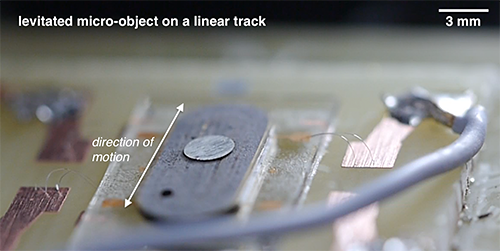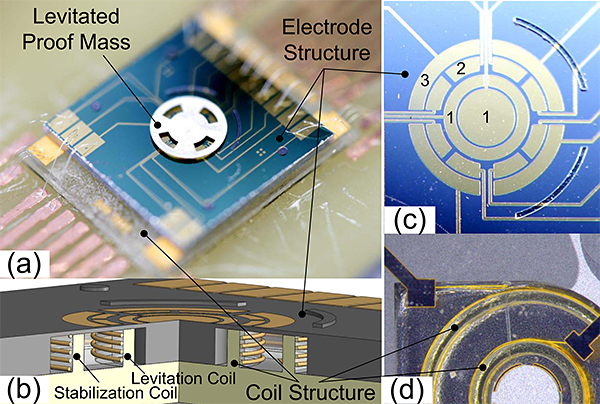Microscale maglev system: Novel architectures for micro-scale inductive levitation
- Type:Master Thesis
- Supervisor:
- Field of Study:
Mechanical and/or electrical engineering, MEMS
Job description
Inductive levitation is a technology used to support and/or manipulate objects eliminating all mechanical contacts to other surfaces. As a consequence of eliminating friction and wear, inductive levitation systems exhibit several exquisite characteristics. Such systems are able to operate without lubrication, are suitable for dust-free environments, and are generally low maintenance. One important and generally well-known feature (see maglev systems) is the capability to reach extremely high rotational or translational speeds, e.g., 40 million rpm have been reported in [1]. It is important to realize the fact that miniaturization inherently works in favor of increasing the rotational or translational speed of the considered system.
The central topic of the proposed Master thesis is the development of novel architectures for inductive levitation systems. Figures 1 and 2 show two such designs previously developed in the group, one for inductive levitation along a linear track, the other for vertical and angular positioning based on a combined inductive and electrostatic actuation. The target of this project is to build upon our previous achievements [2] and expand the manipulation freedom of inductively levitated objects with a focus on movement trajectory, resolution and speed.
Are you passionate about electrical and mechanical engineering? Are you ready to challenge yourself in developing the most versatile miniaturized inductive levitation system as the goal of your Master thesis? Are you interested in a complete project from the design phase all the way to prototype testing?
If “yes”, we are looking for you!
The specific tasks within the project will be: (i) electromagnetic simulation of the wire tracks needed to support and stabilize levitation; (ii) decision on prototype design followed by fabrication; (iii) prototype testing and characterization.
During the Master thesis, you will get hands-on experience on microsystems design, cleanroom fabrication, electrical characterization and testing, having the opportunity to get exposure to a wide range of instruments and techniques. You will be integrated in the larger team of the Spin & Photon Applications (SPA-) Laboratory. Within this project, you will use the infrastructure existent at the Institute of Microstructure Technology (IMT), i.e., microfabrication facilities and testing equipment. This is a complete project, offering the possibility to fabricate and test the devices, giving you the opportunity to co-author conference and/or journal publications.
References:
[1] DOI: 10.1126/sciadv.1701519
[2] DOI: 10.1109/JMEMS.2015.2469211
[3] DOI: 10.1088/1742-6596/1052/1/012048
[4] DOI: 10.3390/mi5041469

Figure 1: An Aluminium disk object is levitated along a linear track.

Figure 2. A prototype previously developed in our group showing combined action: the Aluminium proof mass
(a) is inductively levitated while a series of electrodes (c) are used for electrostatic actuation (JMEMS, vol 24, no. 5, 1248-1250, 2015).
Starting date: by appointment
Contract duration: 6-9 months
Qualification:
- good academic record (marks); curious about various aspects of science;
- enthusiastic to work in a multidisciplinary environment;
- independent thinker and team player;
- in particular: strong interest in electrical and mechanical engineering connected with microsystems technologies;
- knowledge in microsystems/microfabrication is desirable.
Technical Contact
Dr. Vlad Badilita
Karlsruhe Institute of Technology
Institute of Microstructure Technology
P.O. Box 3640
76021 Karlsruhe
phone: +49 721 608-29315
e-mail: vlad badilita ∂does-not-exist.kit edu

